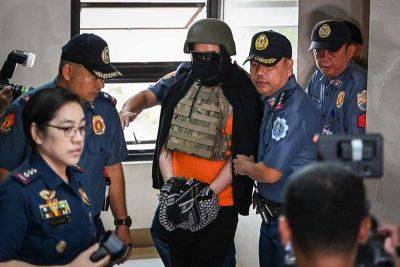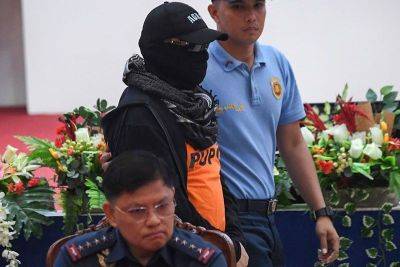DOJ: No need for protection order vs PNP's entry to KOJC compound
MANILA, Philippines — The actions committed by the Philippine National Police (PNP) during the service of arrest warrant in the compound owned by fugitive doomsday preacher Apollo Quiboloy are lawful, the Department of Justice said (DOJ) on Tuesday.
The justice department said that the PNP acted due to a warrant of arrest issued by courts against the fugitive preacher which is within the duty of the police that eliminates the ground in invoking the writ of amparo.
The DOJ issued this statement on Wednesday, a day after a Davao court issued a temporary protection order on Quiboloy’s “church” Kingdom of Jesus Christ (KOJC) and Jose Maria College Foundation Inc., which stemmed from the writ of amparo asked by them on July 1.
A writ of amparo is a protection available to individuals “whose right to life, liberty and property” are threatened resulting from an unlawful act or omission by public officials. It can be filed before any lower court or directly before the Supreme Court.
The protection order issued by the Davao court ordered the Police Regional Office 11 to remove all the “barricades, barriers and blockades” around the Quiboloy-owned compound that hinder the religious, academic and proprietary rights” of the preacher’s supporters.
Since Saturday, the PNP has been around the KOJC compound to implement the arrest warrant against the doomsday fugitive preacher. The police entered the compound with 2,000 personnel which the KOJC supporters and Quiboloy allies called “excessive use of force.”
President Ferdinand Marcos Jr., however, denied the “overkill” claim of Quiboloy’s supporters, saying that the number of policemen deployed was necessary for a 30-hectare compound.
Despite the protection order issued by the court, the service of warrant of arrest against the fugitive preacher will still push through.
“The writ of amparo could not hold against…that was filed against the police, could not prevail over a lawful order of the court that directs them to arrest the person, and it’s the same, the same court level that issued it that’s why we are not really about to raise our hands and surrender to the court in that manner, so we are continuing the arrest







